Bringing New Technologies into the Forensic DNA Laboratory
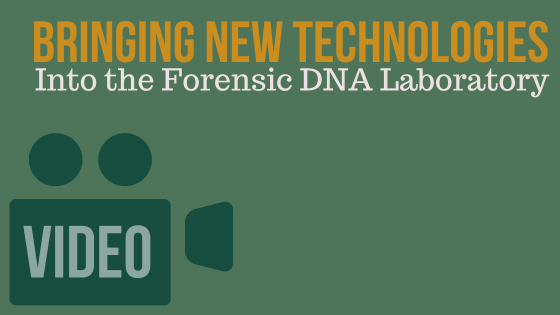
Travis chats with Jennifer Raymond, Research Coordinator at the New South Wales Police Force in Australia, who is responsible for investigating new technologies to determine whether or not to implement them into the laboratory. They discuss the implementation of forensic investigative genetic genealogy into casework in Australia and the public acceptance level of the technique […]
International Considerations for Forensic Investigative Genetic Genealogy
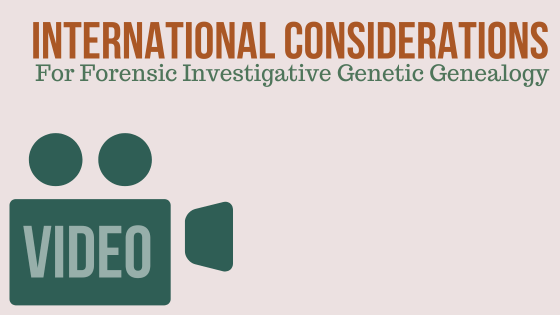
Travis chats with Nathan Scudder, Coordinator of Research and Innovation for the Australian Federal Police. He is a member of the Australian Forensic Genetic Genealogy Collaboration, working to assess the feasibility of advanced DNA capabilities to solve crimes in Australia. Currently, the majority of Doe and unidentified persons cases using forensic investigative genetic genealogy […]
Investigative Genetic Genealogy is in Urgent Need of Standards and a Certification Exam, and the Investigative Genetic Genealogy Accreditation Board is Working to Provide Them
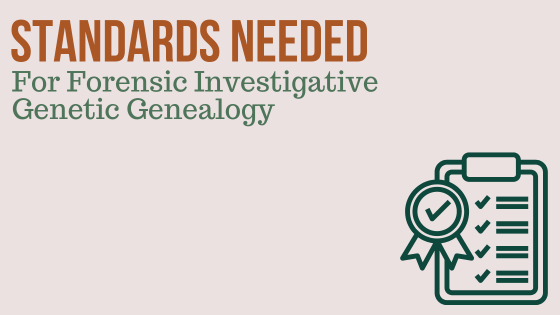
Today’s blog is written by guest bloggers David Gurney, CeCe Moore, Margaret Press, Carol Rolnick, Bonnie Bossert, and Andrew Hochreiter. Reposted from The ISHI Report with permission. This article is adapted from the manuscript, The Need for Standards and Certification for Investigative Genetic Genealogy, and a Notice of Action, published in Forensic Science International volume […]
Meet ISHI Exhibitors: Parabon NanoLabs

Travis chats with Ellen Greytak, the director of Bioinformatics, of Parabon NanonLabs who describes the identification of “JB55” who had died in the 1800’s. Unlike other burials of that time in the area, his skull and femurs were neatly arranged in the shape of a skull and crossbones, leading archaeologists to conclude that the man […]
‘Baby Alpha Beta’ and the Birth of Investigative Genetic Genealogy
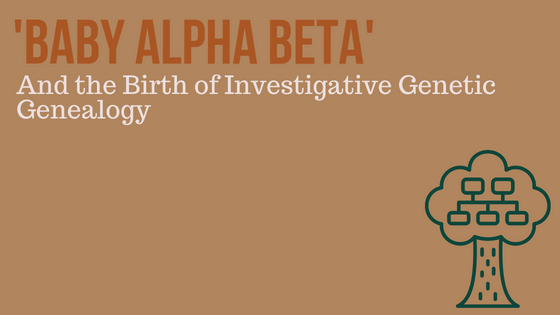
Today’s blog is written by guest blogger Edward Humes. Reposted from The ISHI Report with permission. She was in her twenties, homeless, out of money, living in an old car with two young sons, their father in the wind. She was pregnant again. Nine months pregnant. But she didn’t show much, and layered against […]
Catching up with Olivia McCarter: Genealogy with ‘Moxie’
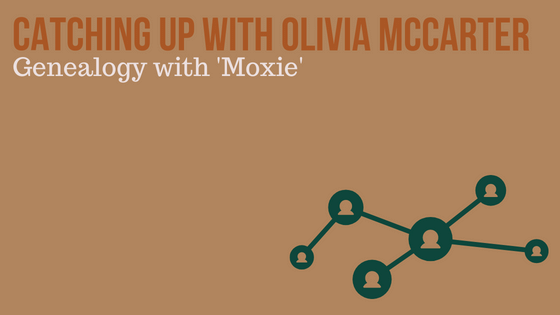
Reposted from The ISHI Report with permission. You may recognize Olivia McCarter as a former ISHI Student Ambassador. At 19 years old and a freshman at the University of South Alabama, she was one of the youngest to work forensic cases using forensic investigative genetic genealogy. Olivia had never done genealogy work before, […]
Manually Degraded SNP Microarray Data on GEDmatch Top Matches for Forensic Genetic Genealogy
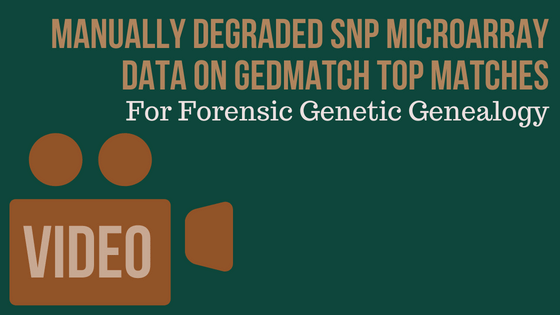
Forensic Genetic Genealogy (FGG) has recently become a valuable tool in the forensic science community and is having a great impact on the resolution of unresolved cases, including homicides, sexual assaults, and Unidentified Human Remains (UHRs) cases. FGG employs SNP sequence data uploaded to genetic genealogy databases (i.e., FamilyTreeDNA® and GEDmatch PRO®) to identify […]
Their Own Clues: How Decendents’ Mementos Provide Supporting Evidence to Identification
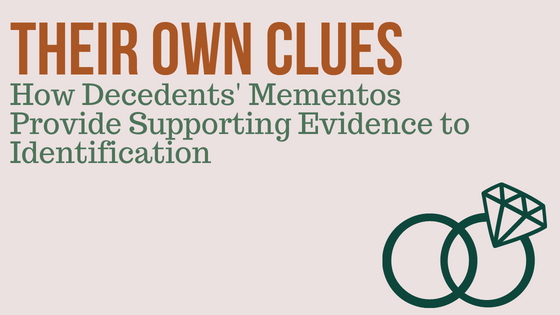
Today’s guest blog is written by Cairenn Binder, Director of Education and Development at DNA Doe Project; Director, Investigative Genetic Genealogy Certificate Program at Ramapo College of New Jersey; Founding Partner of Coast to Coast Genetic Genealogy Services. Investigative genetic genealogy (IGG) has become a leading method for restoring the names of the long-term […]
Catching Up with Colleen Fitzpatrick

Travis sits down with Colleen Fitzpatrick, founder of Identifinders International, and longtime attendee and speaker at ISHI. In this interview, Colleen shares what she takes away from attending the ISHI conference such as discussing challenges with other attendees. She also talks about what she’s currently working on, educating the general public about uploading their DNA […]

